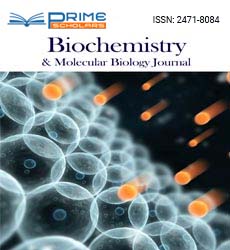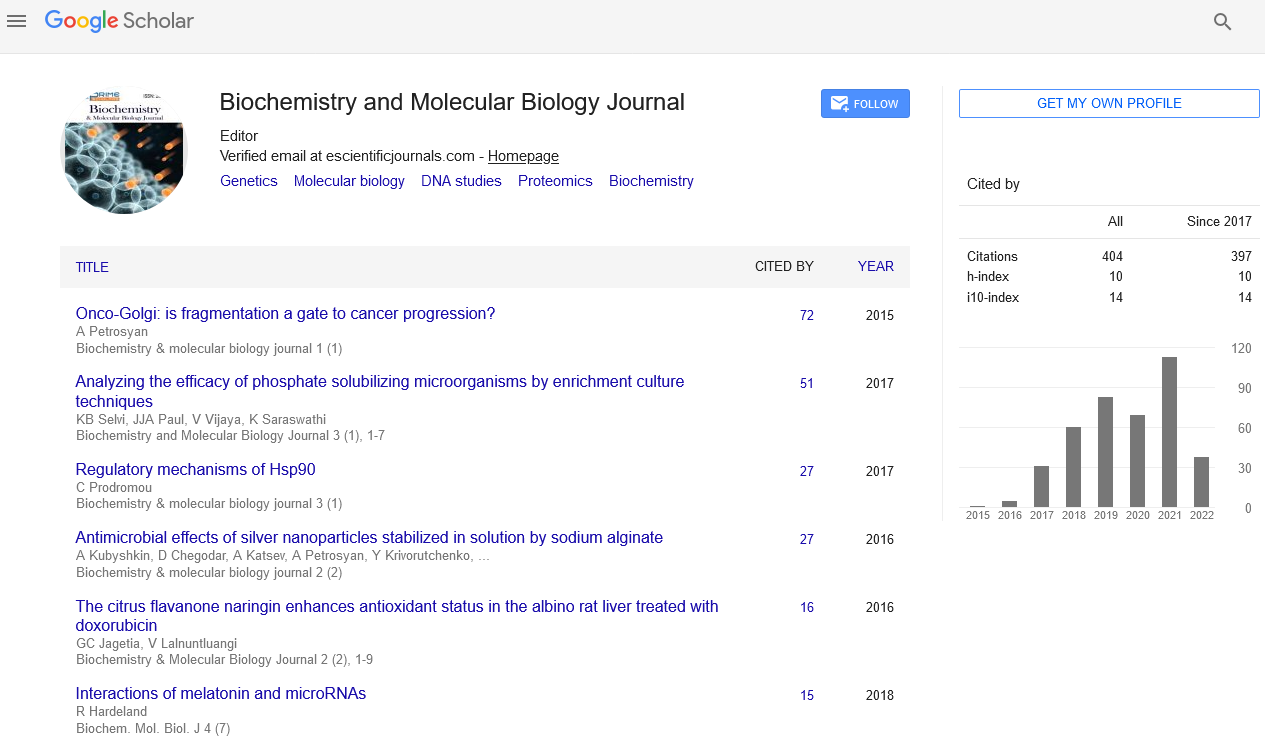Commentry - (2022) Volume 8, Issue 11
Cultured Primary Neurons Inflammatory Responses to Fibrinogen and the Role of Nuclear Factor-kappa B
Nicolas Morgon*
Department of Biochemistry, Queen’s University, Canada
*Correspondence:
Nicolas Morgon,
Department of Biochemistry, Queen’s University,
Canada,
Email:
Received: 01-Nov-2022, Manuscript No. IPBMBJ-22-15098;
Editor assigned: 03-Nov-2022, Pre QC No. IPBMBJ-22-15098 (PQ);
Reviewed: 17-Nov-2022, QC No. IPBMBJ-22-15098;
Revised: 22-Nov-2022, Manuscript No. IPBMBJ-22-15098 (R);
Published:
29-Nov-2022, DOI: 10.36648/2471-8084-8.11.103
Description
Traumatic Brain Injury (TBI), an inflammatory disorder, is linked
to neurodegeneration and a breached blood-brain barrier (BBB).
One of the effects of inflammation is an increase in the protein
fibrinogen (Fg), which is largely produced in the liver. The BBB is
altered by inflammation, which increases the chance that Fg may
interact with neurons by extravasating into the brain’s parenchyma.
In the past, we’ve shown that connections between the neuronal
intercellular adhesion molecule 1 and the Fg and cell prion
protein increased oxidative damage, pro-inflammatory cytokines,
apoptosis, and cell death. However, the transcription route implicated
in this process was not identified. In primary cultured mouse
cortical neurons.
The expression of NF-B protein and the Fg-induced genes CCL2
and IL-6 both increased in response to a particular interaction between
Fg and neurons. These findings suggest that extravasated
Fg directly interacts with neurons during TBI-induced neurodegeneration,
activating the transcription factor NF-B and increasing the
expression of pro-inflammatory cytokines. This interaction may be
a mechanism for neuro-inflammatory diseases that result in vascular
cognitive impairment.
Traumatic Brain Injury (TBI) is one of the primary causes of morbidity
and mortality in the US. It is a neurodegenerative inflammatory
illness. Unintentional falls and car accidents are the most
frequent injuries that necessitate hospitalization for TBI. A single
fall could have a negative, fatal, or even life-changing impact on
these patients. An additional injury, such as neurodegeneration
and cognitive decline, may result from a TBI’s immediate physical
harm and inflammation, which may last for weeks, months, or
even years.
Some TBI patients may get post-concussion syndrome over time,
which is also referred to as cognitive impairment, pain, sleep
difficulties, and physical handicap. Blood-Brain Barrier (BBB) disruption is known to begin early in TBI, although it may persist for
many years after the initial damage.
This research proved that Fg stimulated neurons in a dose-dependent
way. Additionally, our results showed that Fg has a specific
effect on NF-B activation as evidenced by the reduction of Fg-induced
NF-B activation by blocking its recognised receptors (ICAM-
1 and PrPC). This study showed for the first time that inhibition of
ICAM-1 and PrPC neuronal receptors decreased Fg-induced NF-B
activation and the subsequent generation of pro-inflammatory cytokines.
As a result, this study advises against using Fg receptor
blockers or NF-B-specific. Studying the role of Fg-induced NF-B activation
during TBI may open up new therapeutic avenues or provide
light on the mechanisms of action of drugs with the potential
to treat neuro-inflammatory illnesses by preventing neurodegeneration
and the resulting memory loss.
In particular, traumatic Brain Injury (TBI), which is connected to
persistent inflammation, the buildup of Fg in the brain parenchyma,
and accelerated neurodegeneration that causes memory loss,
could be treated with ICAM-1 and PrPC. These findings point to
potential explanations for the observed effects, which originate
in the vascular system (vascular permeability, Fg extravasation),
cause neuro-inflammation (represented by the expression of CCL-
2 and IL-6), and result in memory loss that has previously been
linked to traumatic brain injury (TBI) and is referred to as vascular
cognitive impairment and dementia.
Acknowledgement
The authors are grateful to the journal editor and the anonymous
reviewers for their helpful comments and suggestions.
Declaration of Conflicting Interests
The authors declared no potential conflicts of interest for the research,
authorship, and/or publication of this article.
Citation: Morgon N (2022) Cultured Primary Neurons Inflammatory Responses to Fibrinogen and the Role of Nuclear Factor-kappa
B. Biochem Mol Biol J. 8:103.
Copyright: © 2022 Morgon N. This is an open-access article distributed under the terms of the Creative Commons Attribution
License, which permits unrestricted use, distribution, and reproduction in any medium, provided the original author and source
are credited.

